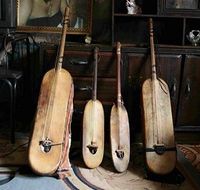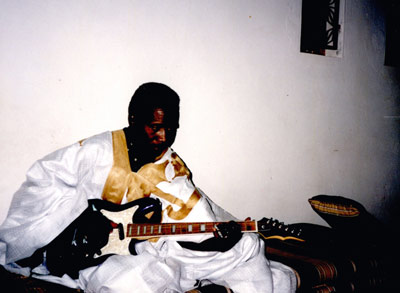涟漪 Lian Yi 1/23/2023: Home
Happy Spring Festival! I hope everyone has been having a good new year. Like many of you, I’ve been eating a lot of good food and spending time reconnecting with family. I’ve also been thinking a lot about what it means to be with family, what home means, and what it means to feel safe. With what happened this weekend, it seems more important than ever to hold onto that. So, I hope the collection of songs here can soothe you and remind you about the beauty of this holiday. As a reminder, most Cpop songs lack official English translations, so I have translated most of them myself. If you want to look anything up, it’s best to stick to the Chinese names.
“Ballad” by Ronghao Li, En
“Chengdu” by Zhao Lei, Can’t Grow Up*
“The Story of a Small Town” by Teresa Teng, Small Town Classics*
“Hometown” by Xu Wei, That Year*
“North Hollywood” by Mao Buyi, Perfect Day
“Shanghai 1943” by Jay Chou, Fantasy
“City Footsteps” by Paula Tsui, Every Step*
“Mountains and Rivers of Hometown“ by Li Jian, Music of My Pride
“The Prose Poetry of My Father” by Xu Fei, The Prose Poetry of My Father*
“The Sea, My Hometown” by Li Jian, Spoil*
“Bidding Farewell” by Pu Shu, Orion: Special Performance*
*denotes an unofficial English translation
《歌谣》李荣浩,《嗯》
《成都》赵雷,《无法长大》
《小城故事》邓丽君,《小城经典》
《故乡》许巍,《那一年》
《南一道街》毛不易,《平凡的一天》
《上海一九四三》周杰伦,《范特西》
《城市足印》徐小凤,《每一步》
《故乡山川》李健,《音乐傲骨》
《父亲写的散文诗》许飞,《父亲写的散文诗》
《大海啊故乡》李健,《溺爱》
《送别》朴树,《猎户星座 专场》
Miku Nation #8
youtube playlist: Miku nation 1/20/23 – YouTube
yankana – しみったれ (feat. 可不)
FLG4 ハツコイソウ (hatsukoiso) feat. Flower
40mp – 恋愛裁判 Love Trial ft. hatsune miku
LonePi ハイドレンジア – (hydrangea) feat.歌愛ユキ
sagala – マイロック (my rock) ft. hatsune miku
みきとP – 39みゅーじっく (thank you music) ft. hatsune miku
香椎モイミ – 初恋日記 (first love diary) / feat. 音街ウナ (otomachi una)
Eve – Dramaturgy ft. hatsunem miku
Kikuo – Love me, love me, love me ft. hatsune miku
livetune – decorator feat. hatsune miku
harufuri – 右に曲ガール (turn right girl) ft. kasane teto
hitoshizu yamasankakei – Sister’s ∞ mercY kaamine rin / len
Playlist for Lost in the Stacks from Friday, Jan 20, 2023 (“What Does The Archivist Care About?”) Episode 545
Hear the show at http://traffic.libsyn.com/lostinthestacks/LITS_Episode_545.mp3
“I Found that Essence Rare” by Gang of Four
Interview with Alison Reynolds, Research Services and Instruction Archivist at the Georgia Tech Library
File this set under CD971 .D35
“Am I Wrong” by Mikal Cronin
“Hard to Find” by Squeeze
Continued interview with Alison Reynolds
File this set under HD4855 .I58
“Gamma Rays” by Temples
“I Can’t See You” by Tim Buckley
Continued interview with Alison Reynolds
File this set under the finding aid Toombs, Amisano, and Wells Visual Materials, DV006
“Hidden in the Sand” by Tally Hall
“Look at All the Things” by Crazy Horse
“Of the Past” by Julien Chang
messy life 1/19/23
Their / They’re / There – A Symphony Of Sparrows
Precious Little Life – Pain vs. Pleasure
Perspective, a Lovely Hand to Hold – Those Few Words
Indigo Moiré – Whole, Again
Asian Glow; sonhos tomam conta – hangthemall
I’m Glad It’s You – Anything But Blue
A Great Big Pile of Leaves – Slumber Party
Two Knights – Dear God, This Parachute is a Knapsack
Cloud District – You Are the Answer to My Security Question
Everyone Everywhere – Turn & Go & Turn
The Speed of Sound In Seawater – Dinner and a Movie on a Post-Apocalyptic Earth: 12 Bottle Caps, Successfully Repopulating the Human Race: Priceless
Twinkle Park – Nonphenomenal Love Song
Newfound Interest in Connecticut – And Then They Kissed
lobsterfight – The Theme For This Evening’s Warm Dinner Salad
continental drift 1/18/23: mauritania
 This week we are drifting (in a continental fashion) to Mauritania! Find the playlist here, and listen back to the episode here.
This week we are drifting (in a continental fashion) to Mauritania! Find the playlist here, and listen back to the episode here.
The Islamic Republic of Mauritania is a country in Northwest Africa, bordered by the Atlantic Ocean, Western Sahara, Algeria, Mali, and Senegal. The name Mauritania is derived from the dominant ethnic group, the Moors. Its official language is Arabic, though pulaar, soninke, wolof, and french are also officially recognized. Its signed language is Francophone African Sign Language. Since independence from France in 1960, Mauritania has been culturally, linguistically, and politically part of the Arab world; they belong to the Arab League and the official religion is Islam.
Moorish music can be roughly divided into ‘folk’ music and ‘classical’ music. Folk music includes lullabies, work songs, game songs, courting songs, shepherd songs, and religious praise ‘songs’, and the classical music is of the Iggawen, or griots. The music industry in Mauritania is limited: the first professional studio opened in 2003, and they are only now starting to develop a nightlife where popular music is played.

The tidinit
Jakwar is a style of dance music that was created in 1976 by Jheich ould Abba, a blind musician from Atar in Northern Mauritania. It was named after the fast French fighter jets, “Jaguar,” that often flew over northern Mauritania during the Saharan war. It was made by amplifying the tidinit, a traditional 5-string lute.
Jakwar sample:
“Guera” // Idoumou ould Jheich ould Abba (surge of wedding)
Iggawen started playing Jakwar on the electric guitar instead of the tidinit, and Hammadi ould Nana is credited as the first to do so. Hammadi learned tidinit from his father and was also influenced by his paternal grandmother, who led a group of three female singers. Hammadi was trained on the traditional tidinit music but was more interested in the Haratin folk music.

Hammadi ould Nana
In the late 1960s, one of his cousins had brought a guitar with him. When his cousin left Tidjikja several months later, the guitar did not leave with him. Over the next couple of years Hammadi started to develop a unique repertoire of guitar melodies; a repertoire that both conformed to the strict modal structures of Moorish music, and drew on Haratin folk rhythms. Running his acoustic guitar through a radio amplifier, and accompanied by his sister, several percussionists, and a chorus of female singers, Hammadi was starting to develop the sound that would make his name. When he was gifted an electric guitar, his distinctive style took form.
Electric jakwar sample:
Hammadi ould Nana, live recording July 2000
This next recording features two young sisters, Hudho mint Abba (16 years old) and Guine mint Abba (14 years old), accompanied by their mother Mukhtara mint Nana on Ardin, an eleven string harp, and their cousin Idoumou ould Jheich ould Abba on Tidinit. This recording was made in a “small blue-walled room at 11 pm.”
Small Blue Walled Segment:
Hudho mint Abba, Guine mint Abba, Mukhtara mina Nana, & Idoumou ould Abbba

Malouma
Female musicians are considered rare in Mauritania, though, paradoxically, the most popular musicians are often female. Dimi Mint Abba is known for her ‘salon music.’ Both of her parents were musicians, and her father was commissioned to compose the national anthem.
Malouma is a singer, politician, and activist. She’s been exiled from Mauritania (and since let back in) for her views on women’s rights and caste inequality. She’s earned the recognition of Knight of the Legion of Honor from France for her activism.
Female musician segment:
Hassaniya Song for Dancing // Khalifa Ould Eide, Dimi Mint Abba
Biyé // Ooleya Mint Amartichitt
Yarab // Malouma
Ghlana // Noura Mint Seymali
The Orchestre National De Mauritanie was created in 1968 following independence from France, but they were shut down in 1975 after a military coup overthrew the Daddah regime. All of their recordings were nearly destroyed in the coup when the radio archive was looted by loyal military forces. During the chaos, one heroic radio engineer snuck into the archives and salvaged the reels of the music which were sequestered in his home for the past decades.
Orchestre segment:
Mauritanie Mon Pays, Que J’aime (Mauritania My Country, Which I Love) // Orchestre National de Mauritanie
La Mone (The Monk) // Orchestre National de Mauritanie
Modern Music segment:
Kar // Ahmedou Ahmed Lowl
AR NJEHEN // ADVISER, DJ Mansoul
Zina // Babylone


